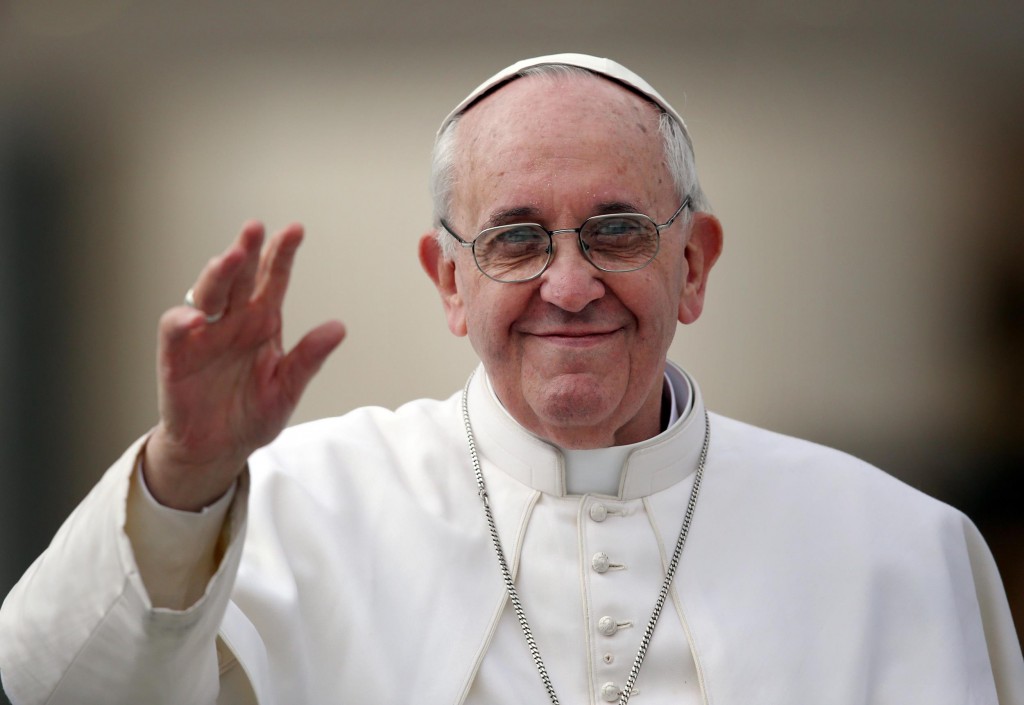A message to leaders and supporters of the Roman Catholic Church by Pope Francis, cataloging the threat of climate change and the moral imperative to act aggressively to combat its root causes, is being heralded around the world on Thursday as a powerful—even ‘radical’—statement from one of the world’s most recognizable religious leaders.
“What makes the pope’s message so radical isn’t just his call to urgently tackle climate change. It’s the fact he openly and unashamedly goes against the grain of dominant social, economic and environment policies.”
—Steffen Böhm, Sustainability Institute at University of Essex
Released in the form of a 180-page Papal Encyclical (pdf)—a formal letter to all the bishops of the church—the document codifies an official message from the spiritual leader, who makes the case that acting on climate change is not just a matter of decreasing the amount of greenhouse gas emissions that are fueling global warming, but also involves addressing the inequities and injustices caused by the fossil fuel-driven economy and resulting climate change.
“This home of ours is being ruined and that damages everyone, especially the poor,” reads the pope’s message on the environment, climate, and social justice.
The encyclical states:
The climate is a common good, belonging to all and meant for all. At the global level, it is a complex system linked to many of the essential conditions for human life. A very solid scientific consensus indicates that we are presently witnessing a disturbing warming of the climatic system. In recent decades this warming has been accompanied by a constant rise in the sea level and, it would appear, by an increase of extreme weather events, even if a scientifically determinable cause cannot be assigned to each particular phenomenon. Humanity is called to recognise the need for changes of lifestyle, production and consumption, in order to combat this warming or at least the human causes which produce or aggravate it. It is true that there are other factors (such as volcanic activity, variations in the Earth’s orbit and axis, the solar cycle), yet a number of scientific studies indicate that most global warming in recent decades is due to the great concentration of greenhouse gases (carbon dioxide, methane, nitrogen oxides and others) released mainly as a result of human activity. Concentrated in the atmosphere, these gases do not allow the warmth of the sun’s rays reflected by the Earth to be dispersed in space. The problem is aggravated by a model of development based on the intensive use of fossil fuels, which is at the heart of the worldwide energy system. Another determining factor has been an increase in changed uses of the soil, principally deforestation for agricultural purposes.

